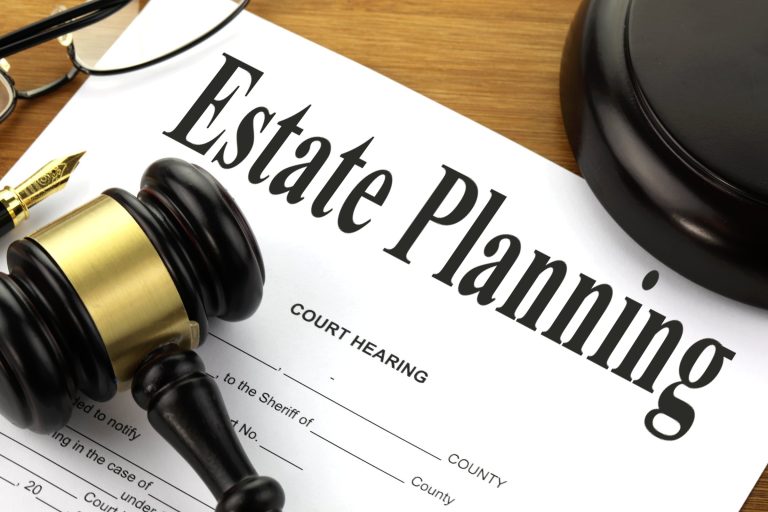Pitfalls in Estate Planning: Navigating the Common Errors and Oversights
Table of Contents
Introduction
Pitfalls in Estate Planning can be likened to hidden traps on a treasure map. They might seem insignificant or easy to overlook, but falling into one can have significant consequences.
Whether you’re charting your legacy’s course or ensuring your loved ones are taken care of, avoiding these pitfalls is crucial. In this guide, we’ll navigate through the common errors many encounter and provide you with the tools to steer clear.
And remember, while the journey might be complex, the peace of mind you’ll gain is priceless. So, let’s set sail and avoid those pitfalls together!
The Common Errors in Estate Planning
Estate planning is not just about deciding who gets your vintage stamp collection. It’s a comprehensive process that ensures your assets are distributed according to your wishes after you’re gone.
However, many dive into this process without adequate preparation, leading to common mistakes such as:
- Not Having a Plan at All: Believe it or not, many individuals think they don’t need an estate plan. They assume their assets will automatically go to their spouse or children. But without a will or estate plan, state laws, known as intestacy laws, will decide for you. And trust me, the state doesn’t know about your secret fondness for your second cousin, Bob.
- Choosing the Wrong Executor: It’s flattering to be considered responsible enough to be someone’s executor, but it’s not a role for everyone. Picking your eldest child or a close friend without considering their ability to handle the task can lead to delays and errors in executing your will.
The Devil is in the Details: Overlooking Minor Details
It’s the little things that count, especially in estate planning. For instance, forgetting to update beneficiary designations after a divorce can mean your ex-spouse, not your current partner, gets the payout from your life insurance policy. Imagine the surprise on their faces!
Another often overlooked detail is the specific allocation of assets. Let’s say you want to leave your home to your daughter and your investment portfolio to your son. Without specifying this in your will, they might end up battling it out in court, turning family brunches into awkward affairs.
The Evolution of Life and Estate Plans: Not Updating Regularly
Life is full of surprises. Today you’re buying a goldfish; tomorrow, you’re investing in a vacation home in the Bahamas.
Major life events, like marriages, births, or even that impromptu purchase of a beach house, necessitate a review of your estate plan.
Remember Aunt Marge, who didn’t update her will after adopting three alpacas? Let’s just say her city-dwelling niece was in for a furry surprise.
The Risks of DIY Estate Planning
In the age of YouTube tutorials and DIY blogs, it’s tempting to think you can handle estate planning on your own.
But while you might save on attorney fees, the potential dangers can be costly.
There’s a funny story about a man who, after drafting his will, decided to celebrate with fireworks, only to list them as assets to be divided among his children. You can guess how that turned out!
The Importance of Professional Guidance
While DIY might be suitable for crafting or home repairs, estate planning is a field where expert advice is invaluable.
Think of it this way: you wouldn’t want a plumber performing your heart surgery, no matter how talented he claims to be with a wrench. Similarly, navigating the complexities of estate planning requires a professional touch.
And if you’re worried about costs, remember that a botched DIY will can end up costing your heirs much more in the long run.
Starting a Blog: Sharing Your Estate Planning Journey
Speaking of DIY, have you ever considered starting a blog? It’s 2023, and with the power of AI, blogging has never been easier.
Sharing your estate planning journey can provide valuable insights to others and even offer a touch of humor. After all, who wouldn’t want to read about the time you considered leaving everything to your pet turtle?
Conclusion
Estate planning is a crucial process that requires careful consideration and attention to detail.
By being aware of common pitfalls and seeking professional guidance, you can ensure your legacy is secure and your wishes are honored. And if you’re up for it, why not share your experiences on a blog?
It’s a great way to connect, share, and maybe even have a few laughs along the way.
Frequently Asked Questions
What’s the most overlooked aspect of estate planning?
Often, it’s the minor details like updating beneficiary designations or specifying asset allocations. These small oversights can lead to significant complications down the line.
How often should I review my estate plan?
Ideally, you should review your estate plan every 3-5 years. However, it’s crucial to revisit it after significant life events like marriage, divorce, birth of a child, or major purchases.
Is it really that risky to do my own estate planning?
While some aspects of estate planning can be handled independently, the process’s complexities make it easy to make errors. These mistakes can be costly and time-consuming to rectify, making professional guidance invaluable.
Why is it essential to avoid pitfalls in estate planning?
Avoiding pitfalls ensures that your assets are distributed according to your wishes, reduces potential legal disputes among heirs, and can prevent unnecessary taxes or fees. It’s all about ensuring a smooth transition and honoring your legacy.
I’ve heard that estate planning is only for the wealthy. Is that true?
Not at all! Estate planning is for everyone, regardless of the size of your estate. It’s about ensuring your wishes are followed and providing clarity for your loved ones.
Can I just write my wishes on a piece of paper and consider it my will?
While some regions might recognize handwritten or “holographic” wills, it’s risky. Without proper legal formalities, your handwritten will could be contested or deemed invalid.
How often should I consult with an attorney regarding my estate plan?
It’s recommended to consult with an attorney every 3-5 years or after significant life events. Laws can change, and your personal circumstances can evolve, making regular reviews essential.
What’s the difference between a will and a trust?
A will is a document that outlines how you’d like your assets distributed after death. A trust, on the other hand, places your assets under the care of a trustee for beneficiaries. Trusts can be used to avoid probate, protect assets, or set conditions on how assets are distributed.
I’ve set up my estate plan. Can I just forget about it now?
No, estate plans should be living documents. As life changes, so might your wishes or the nature of your assets. Regularly reviewing and updating ensures your plan remains relevant.
Are digital assets like social media and email accounts considered in estate planning?
Absolutely! In today’s digital age, considering online accounts, digital currencies, and other virtual assets is crucial. They can have financial or sentimental value and should be managed in your estate plan.
What happens if I don’t update my estate plan regularly?
An outdated estate plan might not reflect your current wishes or the current state of your assets. It can lead to disputes among heirs, assets not being distributed as you’d have liked, or potential legal challenges.
Can I include my charitable wishes in my estate plan?
Yes, and it’s a wonderful way to leave a lasting legacy. You can specify charitable donations, set up trusts, or even establish scholarships in your name.
What’s the biggest mistake people make in estate planning?
One of the most significant errors is procrastination. Many assume they can wait or that they’re too young. But life is unpredictable, and having a plan in place is always a wise decision.








One Comment
Comments are closed.